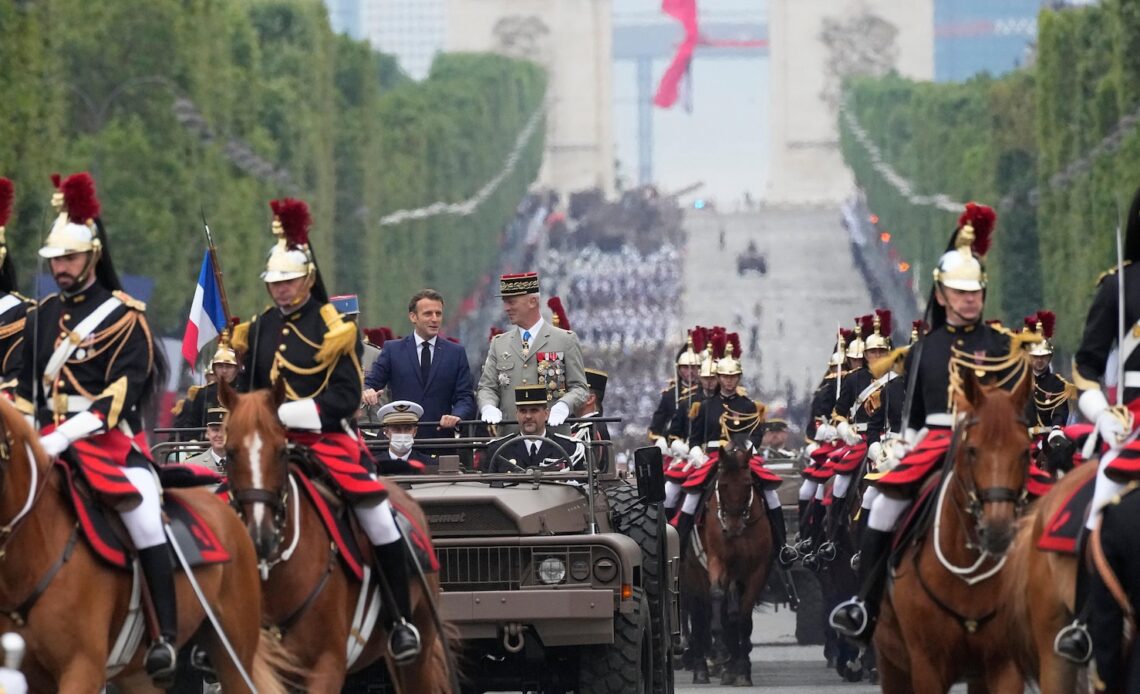PARIS — French President Emmanuel Macron could awake — if he has slept at all — with clipped wings on Monday morning.
The high-stakes second round of the legislative election on Sunday will almost certainly impact the French leader’s sway in the areas of defense and foreign affairs. It could diminish his role as an energetic and influential figure in European and world affairs and as one of Ukraine’s primary backers in the war against Russia, say retired French military officers and analysts of France’s defense and foreign policies.
After the centrist president’s bloc finished a distant third, behind the surging far right, in last weekend’s first round of voting for a new parliament, one of the only certainties before Sunday’s decisive round two is that Macron himself can’t emerge strengthened.
With many of its candidates already out of the race, Macron’s camp can’t secure the absolute majority that gave him ample maneuvering room in his first term as president from 2017. It also is likely to fall well short of the 245 seats it won after his reelection in 2022. That made it the largest single group — albeit without a clear majority — in the outgoing National Assembly that Macron dissolved on June 9, triggering the surprise election after the far right handed his alliance a painful beating in French voting for the European Parliament.
That leaves two outcomes most likely to emerge on Sunday night to Monday as official results come in.
In one scenario, France could end up with a fragmented parliament and a prime minister too weak to seriously undermine Macron’s constitutionally guaranteed role as head of the armed forces and, more broadly, unable or unwilling to majorly challenge his defense and foreign-policy powers. Still, even in this best-case scenario for Macron, France risks becoming inward-looking, more focused on its polarized and unstable domestic politics than its place and military activities in the world.
In a second scenario, a worst case for Macron, the far right could secure an historic victory on Sunday that saddles the president with Jordan Bardella as prime minister, in an awkward and possibly conflictual power-sharing arrangement. The 28-year-old Bardella is a protege of Marine Le Pen, who leads the far-right National Rally party, with Bardella as its president. Both Le Pen and Bardella have made clear that, in power, they would seek to rein in Macron and exert themselves in defense, European and foreign affairs decision-making.
Click Here to Read the Full Original Article at ABC News: Business…

